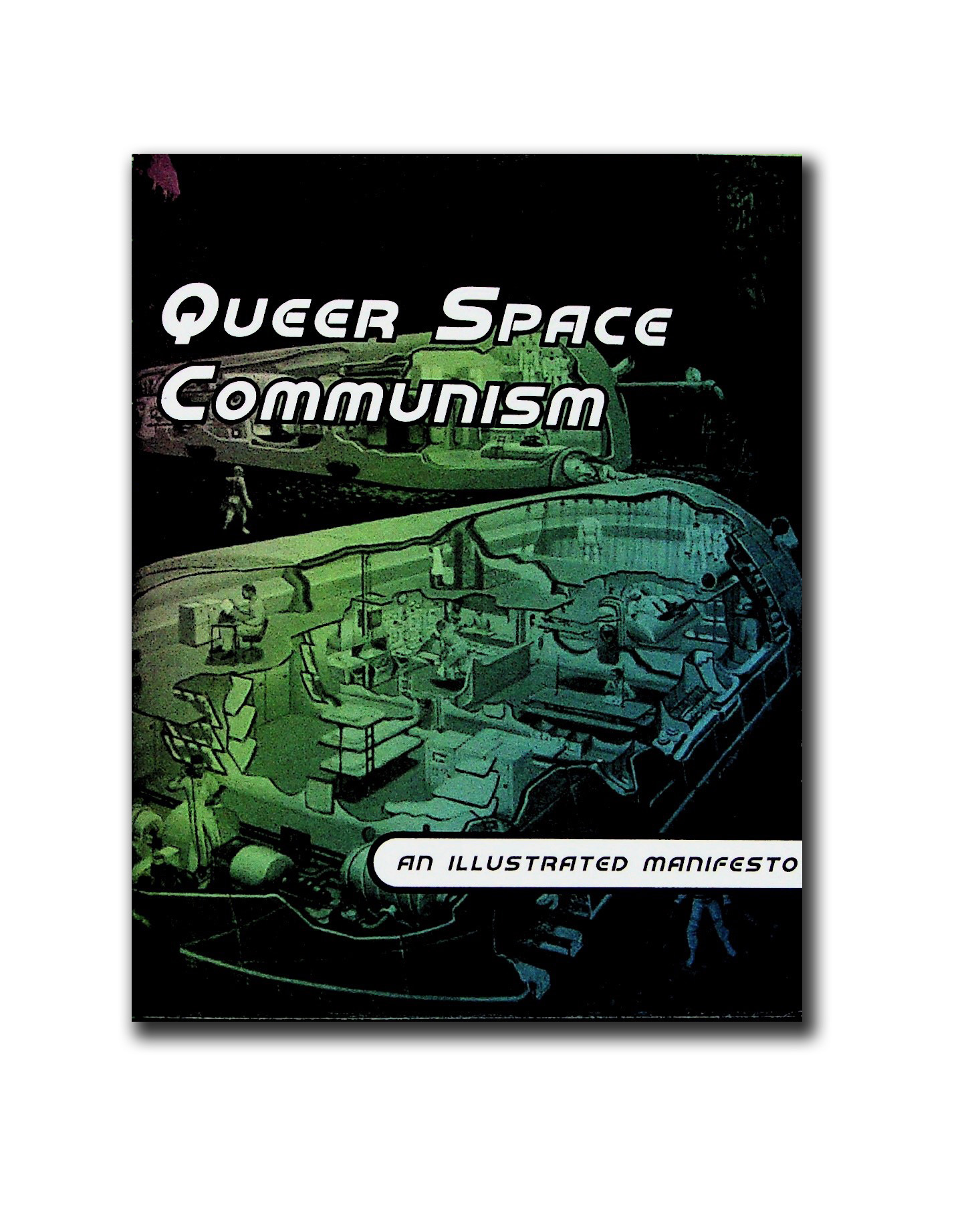 In 1992, the drag queen Joan Jett Blakk ran for presidential office with backing from Queer Nation. Using the slogan “Lick Bush in ‘92,” Blakk’s campaign brought national attention to issues impacting queer communities, particularly the AIDS epidemic that the federal government was completely ignoring1. In the midst of the campaign, Terence Smith, the activist who performs as Blakk, penned an article for the performance art zine P-Form. Smith writes that drag carries a politics of “invulnerability,” providing a means of protection for Smith on both the stage and the streets. “No one can ‘harm’ me in drag,” writes Smith, “Because part of me is hidden underneath a Maybelline shell.” The article is a beautiful illustration of drag as a queer political force—a form of gender-fuckery that according to Smith “stomps out” the signifiers of masculinity and femininity.
In 1992, the drag queen Joan Jett Blakk ran for presidential office with backing from Queer Nation. Using the slogan “Lick Bush in ‘92,” Blakk’s campaign brought national attention to issues impacting queer communities, particularly the AIDS epidemic that the federal government was completely ignoring1. In the midst of the campaign, Terence Smith, the activist who performs as Blakk, penned an article for the performance art zine P-Form. Smith writes that drag carries a politics of “invulnerability,” providing a means of protection for Smith on both the stage and the streets. “No one can ‘harm’ me in drag,” writes Smith, “Because part of me is hidden underneath a Maybelline shell.” The article is a beautiful illustration of drag as a queer political force—a form of gender-fuckery that according to Smith “stomps out” the signifiers of masculinity and femininity.
Smith’s article is one of many articles on drag performance in this special issue of P-Form. The Randolph Street Gallery ran the zine from 1986 to 1999 and covered the performance art scene in Chicago. (Note: Blakk also ran for mayor of Chicago in 1991.) P-Form regularly highlights the work of queer and feminist artists. In the case of this issue, the majority of the articles are written by the artists themselves, who describe their performance practice as well as the difficulty of surviving and sustaining life as a queer performer.
 In an article entitled “Every Breathing Moment,” Michael Palmer describes the institutional violence enacted against trans bodies. Palmer writes about endless visits to doctors who challenged his identity as a trans man and refused to provide top surgery. He writes that “listening” to doctors or family would have meant turning toward death. Palmer describes breathing as a radical act—an assertion of life in institutional spaces that negate trans lives.
In an article entitled “Every Breathing Moment,” Michael Palmer describes the institutional violence enacted against trans bodies. Palmer writes about endless visits to doctors who challenged his identity as a trans man and refused to provide top surgery. He writes that “listening” to doctors or family would have meant turning toward death. Palmer describes breathing as a radical act—an assertion of life in institutional spaces that negate trans lives.
P-Form also provides reviews of other artistic forms, including painting cinema. In accordance with the drag performance theme, this 1991 issue includes a brief review of Jennie Livingston’s documentary Paris is Burning, which had been released the previous year. The review reads like a collage of interviews and pull-quotes, featuring press statements made by Livingston as well as iconic lines from drag performers such as Dorian Corey and Venus Extravaganza. “The balls used to be about what you could create,” says Corey, “Now they’re about what you could acquire.” Corey notes that theft was not uncommon among the economically struggling performers on the ball circuit. The statement is a strong illustration of how the Harlem ball circuit served as a space of queer of color fabulosity that also gestured toward the precarity of queer life. Performance is a means of sustaining queer life, and it depends on radical forms of resistance to institutional oppression.
1 Goodman, Elyssa. “The Drag Queen Who Ran For President in 1992.” Them, 20 Apr. 2018, https://www.them.us/story/joan-jett-blakk-drag-queen-president. Accessed 13 June 2019.

